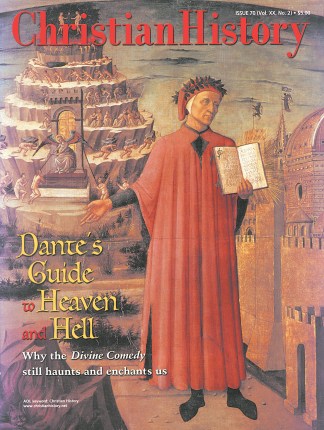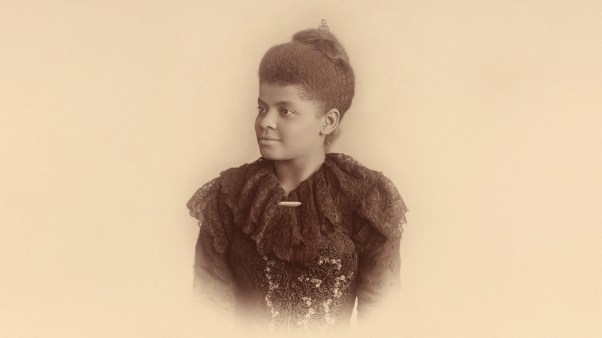Charles Williams (1886-1945), a regular member of the Oxford “Inklings,” was a literary critic as well as a prolific writer of poetry, novels, drama, and theology. He believed that human love and divine love are intricately connected and that earthly pleasures, often seen as distractions or even evils, can actually bring people closer to God. He explores this idea at the beginning of his landmark book on Dante, The Figure of Beatrice, excerpted here.
Dante is one of those poets who begin their work with what is declared to be an intense personal experience. That experience is, as such, made part of the poetry; and it is not only so, with Dante, at the beginning, but also when, in his later and greater work, the experience is recalled and confirmed.
He defined the general kind of experience to which the figure of Beatrice belongs in one of his prose books, the Convivio (IV.xxv). He says there that the young are subject to a “stupor” or astonishment of the mind which falls on them at the awareness of great and wonderful things. Such a stupor produces two results—a sense of reverence and a desire to know more. A noble awe and a noble curiousity come to life.
This is what had happened to him at the sight of the Florentine girl, and all his work consists, one way or another, in the increase of that worship and that knowledge. …
He was nine when he first met Beatrice, and she was eight. He saw her, during the next nine years, on a number of occasions, but it was not until he was eighteen that she spoke to him. She was then walking in the street with two other ladies, rather older than she was; she had on a white dress, and as they passed him she looked at him and “saluted” him. It was nine on a May morning of the year 1283, in a street in Florence. Those two meetings together, with all that went between, formed the “falling in love” of Dante Alighieri, the first but obscure emergence in him of that “quality” of love. …
The appearance of Beatrice, her “image”—”la sua immagine“—produces at their first meeting three distinguishable effects, which he attributed in the physiological and poetic habit of his day to three centers of the human body. …
The “spirit of life,” which dwells in the most hidden chamber of the heart, trembled and said: “Behold a god stronger than I who is come to rule over me.”
The “animal spirit,” which lived in the brain where all sense-perceptions are known, was amazed and said: “Now your beatitude has appeared.”
The “natural spirit,” which dwelled “where nourishment is distributed”—that is, in the liver—begins to weep and says: “O miserable wretch! how often now shall I be hampered!” …
It is not, I think, too much to say that his sex, like his intellect, was awakened. That he had, there and perhaps therafter, no direct desire of Beatrice sexually is likely enough; first love often happens so. But that the potentiality of [physical desire] was there is also likely. When, later, he says that his “natural” spirit was “impeded in its operations,” so that he became weak and frail, and his acquaintances grew curious and even spiteful, he must mean at least that this potentiality was present. Long afterwards he was to cry out: “The embers burn, Virgil, the embers burn,” and the fire was general throughout him.
Copyright © 2001 by the author or Christianity Today/Christian History magazine. Click here for reprint information on Christian History.










